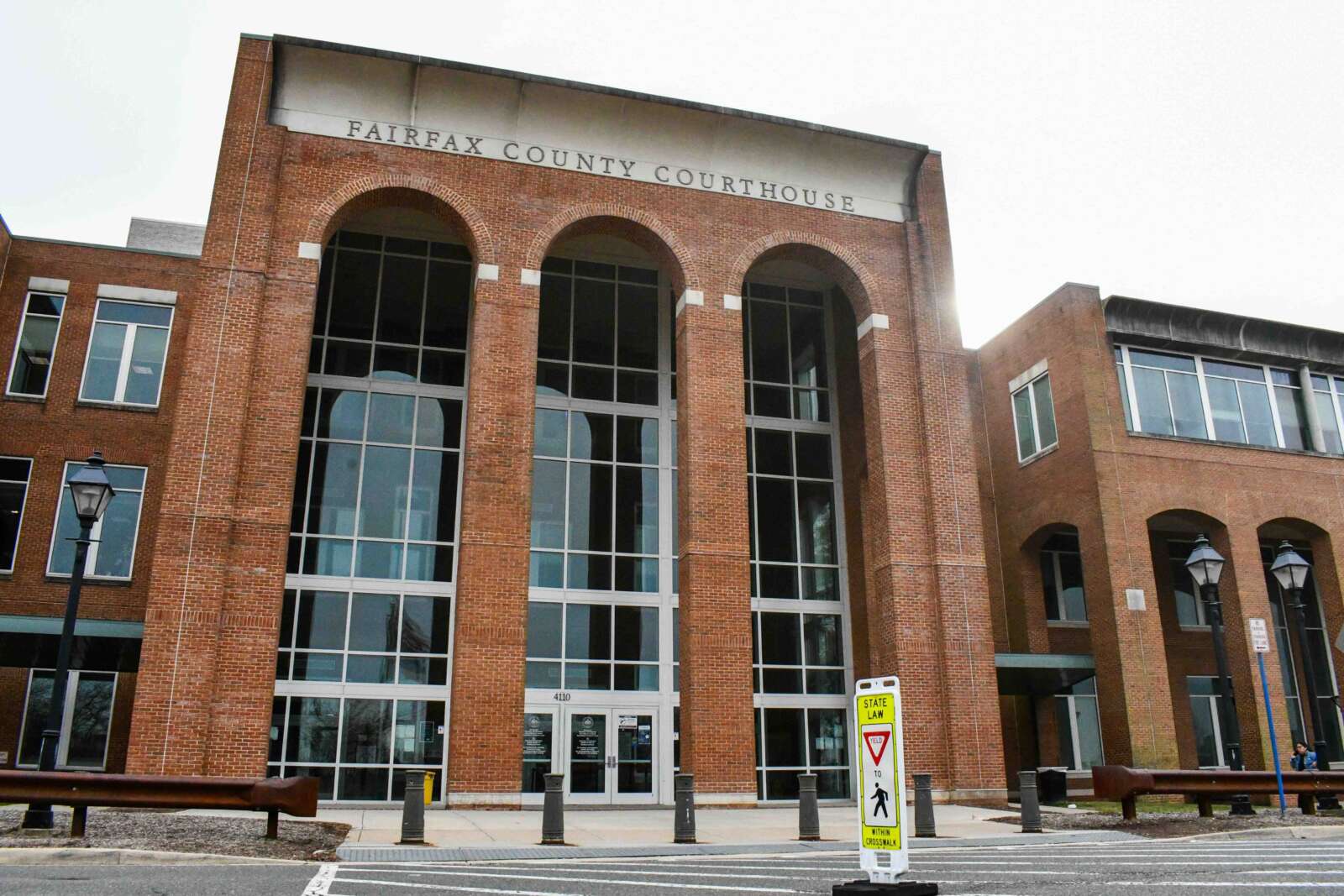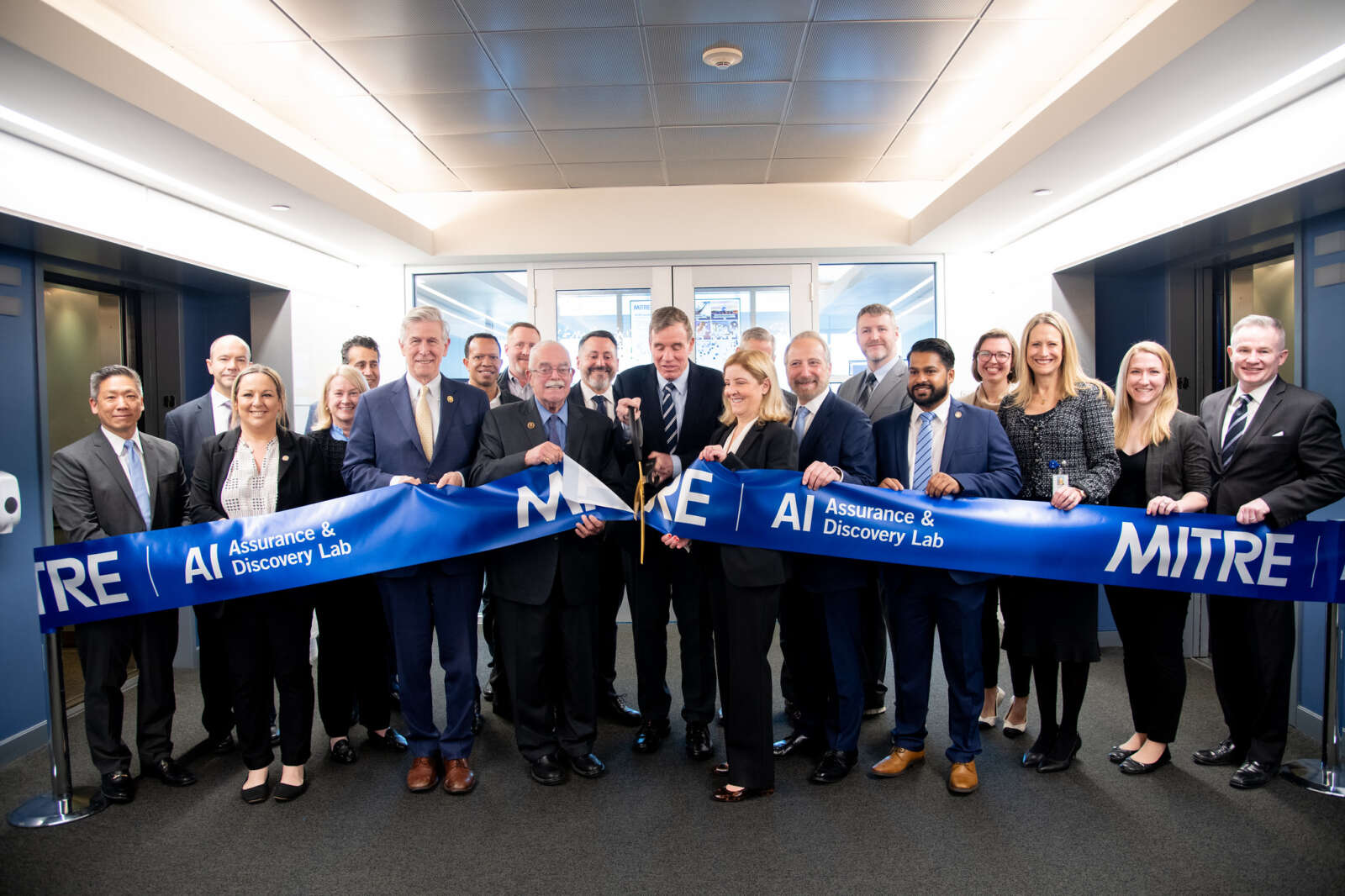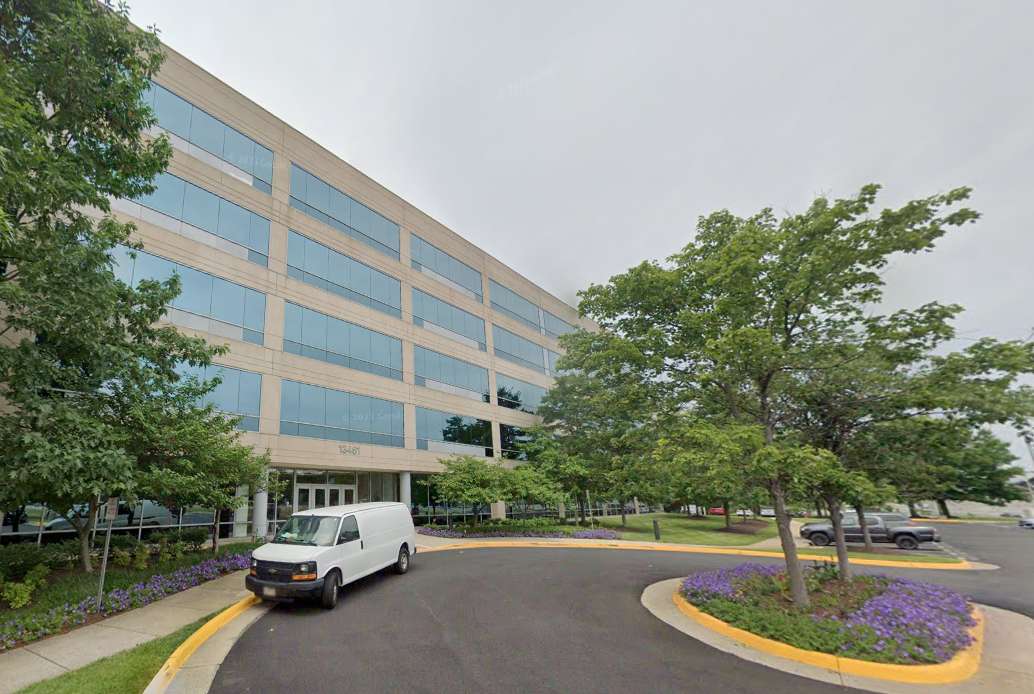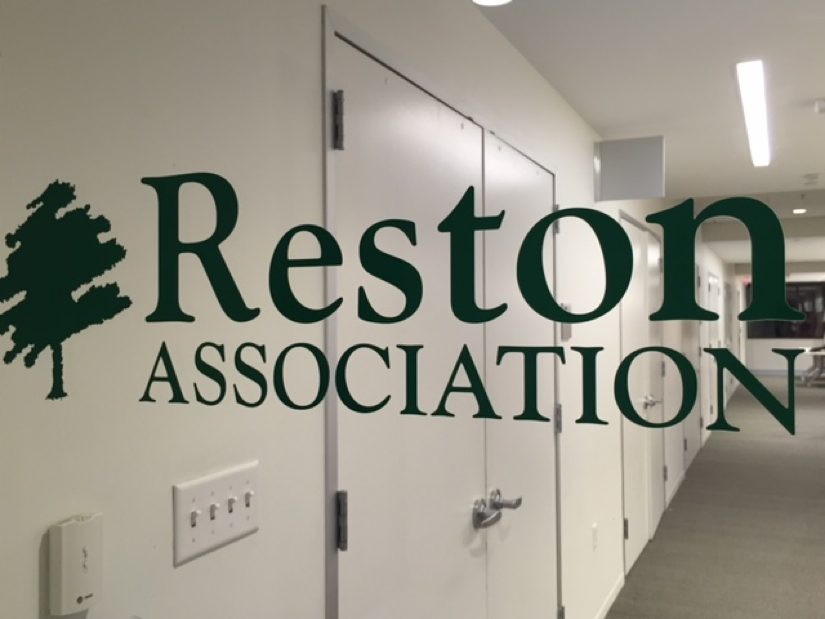
The Fairfax County Board of Supervisors is considering using kiosks equipped with artificial intelligence to provide select legal information in a variety of languages.
The kiosks would feature a virtual assistant that could answer frequently asked questions using a closed-AI system (as distinct from open AI), according to Franconia District Supervisor Rodney Lusk, who introduced a board matter on the kiosks at the board’s March 19 meeting.
“The distinction is that we will program the answers to frequently asked questions into the system using curated templates and language,” Lusk told FFXnow. “The AI program will not be creating its own answers.”
None of the questions are finalized yet, but they could help users identify forms and address other process-related queries. The virtual assistant would also be available online, and both resources would have accessibility features.
County and court staff are reviewing the kiosks and online AI program, and the board voted on March 19 to direct staff to finalize its review and report back. The county also plans to reach out to relevant nonprofits to assist in testing the kiosks, Board of Supervisors Chairman Jeff McKay said at the meeting.
The kiosks and online resource would be an “extension” of the self-help resource center that the county rolled out in October, according to Lusk’s board matter. Staff at the resource center can explain court operations, provide contact information for legal services and answer some general questions.
The resource center launched to assist county residents who are representing themselves in court. The new resources could help residents who aren’t able to travel to the center, which is located in the Fairfax County Courthouse (4110 Chain Bridge Road), though no kiosk locations have been selected.
“Personally, I feel it could be beneficial to be placed in government facilities that are remote from the Fairfax County Government Center and the Fairfax County Courthouse,” Lusk said by email, citing the Gerry Highland Government Center (8350 Richmond Highway) or Franconia Governmental Center (6121 Franconia Road) as examples. “We know that people live great distances from the Government Center and Courthouse, which limits the accessibility of these services.”
The board matter passed unanimously, despite a public meeting notice issue that McKay said left some board members without the opportunity to see the kiosks. Providence District Supervisor Dalia Palchik also said she was concerned about making sure the kiosks were fully vetted before they’re implemented.
The topic will come to the board’s health and human services committee for additional discussion, though the board didn’t specify a date. The committee’s next meeting is currently scheduled for June 4.
Testing the kiosk with actual users and not rushing the process will be important, McKay said, adding that the county should also plan to reach out to the state about support for the program.
“What we don’t want to do is just rush in and further complicate and frustrate people where there’s a misinterpretation and they’re getting the wrong documents that they need to help their case,” McKay said.

When you have concerns about an artificial intelligence-based technology, who are you going to call? For many federal government agencies, the answer is now the Mitre Corporation.
The not-for-profit research organization launched a new AI Assurance and Discovery Lab at its Tysons headquarters yesterday (Monday) with a ribbon-cutting ceremony attended Virginia Sen. Mark Warner and Reps. Gerry Connolly and Don Beyer.
Staffed by Mitre’s scientists and engineers, the lab will help federal agencies and, in the future, private companies assess the risks, security and effectiveness of AI systems that could be used in health care, national security, transportation and other fields, according to a press release.
“Government use of AI will have consequential impacts on the nation and world,” Mitre Senior Vice President and Chief Technology Officer Charles Clancy said. “…However, in adopting these systems, we also need to mitigate risks. Providing an independent assessment of the security, safety, and efficacy of AI systems will play a critical role toward helping government and business realize the transformational power of AI in benefits processing, intelligence analysis, autonomous vehicles, and more.”
Clancy added that the lab is envisioned as “a blueprint for a national network of AI assurance facilities.”
Founded in 1958 in Bedford, Massachusetts, where it still maintains a headquarters, Mitre was started by MIT to develop and manage an air defense system designed to detect potential Soviet missiles. Now bringing in a reported $2.2 billion in revenue, the contractor has helped build everything from facial recognition tools for the FBI to a contact-tracing system used during the COVID-19 pandemic, according to a Forbes profile.
The new lab inside the Mitre 4 high-rise at 7525 Colshire Drive will provide a space for testing AI technology, which is already being used by federal agencies to analyze drone photos, study volcanoes and match job seekers with openings, among other reported examples.
“The opening of MITRE’s AI Assurance and Discovery Lab is an exciting development in the most fertile frontier of technological progress — extracting maximum value from AI while mitigating some of its risks,” Warner said in a statement. “We need to have an all-hands-on-deck approach to studying and unleashing the potential of AI, and I look forward to seeing the discoveries and progress the lab will be able to make in this critical field.”
According to the press release, the lab’s physical space can be customized “for specific mission scenarios and workflows.”
The facility will be supported by more than 200 staff members from Mitre’s AI and Autonomy Innovation Center, according to AI Assurance Solutions Lead Miles Thompson, who oversees the lab. The space can accommodate 50 people at a time and “thousands of remote connections.”
“Federal agencies, and soon private companies, can bring AI-enabled systems to the lab to explore potential risks including whether they perform effectively, consistently, and safely in real-world contexts,” the release said. “MITRE will also use the lab to evaluate factors such as whether systems are secure and free from harmful bias, and allow users to control how their information is used.”
Connolly said Mitre’s lab will be “invaluable” for helping the government adopt AI “with the proper guardrails in place,” while Beyer noted that it suggests Northern Virginia will “continue to lead the way on tech innovation.”

The Fairfax County Police Department will utilize automated technology to analyze body-worn camera footage in real time.
Seeking to improve its training and interactions with the public, the FCPD is the first jurisdiction in Virginia to sign on with Truleo, the Chicago-based technology company announced yesterday (Tuesday).
According to a press release, the technology uses artificial intelligence to process body camera footage, automatically detecting events like use of force, pursuits and frisks. The technology also screens for “professional and unprofessional” language by officers “so supervisors can then praise or review officers’ conduct.”
“We are proud to begin our work with the Fairfax County Police Department and Chief Kevin Davis,” Truleo co-founder and CEO Anthony Tassone said. “Through our work with various law enforcement agencies across the country, we’ve seen how implementing body-worn analytics helps to increase public trust and ensures that police officers meet not just law enforcement standards but also the expectations of the communities they serve.”
Launched in 2021, Truleo uses technology that Tassone and co-founder Tejas Shastry originally developed on Wall Street in 2013 “to analyze employee phone calls and text conversations,” according to the company’s website.
Since launching, the company has partnered with the FBI’s National Academy Associates program and numerous local police agencies, starting with the Alameda police in California in 2022. Other partners include the New York City Police Department and the Paterson Police Department in New Jersey, but police in Seattle discontinued their program in February 2023 after a police union leader was recorded laughing about the victim of a fatal police shooting.
Truleo’s platform generates transcripts of audio recordings captured by body cameras, using natural language processing to detect words or phrases that may signal a notable interaction. A searchable report is then sent to the officer’s supervisor.
Truleo asserts that its technology can reduce workloads for law enforcement agencies, which otherwise analyze less than 1% of body camera footage due to limited resources. However, some civil rights advocates and researchers have raised concerns about privacy and the potential for the technology to be misused.
Studies have found that AI-powered speech recognition tools are less accurate at interpreting Black voices and people speaking a language other than English, since they’re often trained on biased data.
In Fairfax County, police supervisors can’t actively review footage from body-worn cameras due to the department’s auditing process.
At a Fairfax County Board of Supervisors safety and security committee meeting yesterday (Tuesday), Police Chief Kevin Davis said the combined power of the FCPD’s technological commitments will provide greater transparency on community sentiment and officer performance.
In response to Providence District Supervisor Dalia Palchik’s concerns about privacy, Davis emphasized that Truleo won’t activate unless the body-worn cameras are turned on.
“The Truleo is only on when the body worn camera is activated,” Davis said. “When the body camera is not on, Truleo will not be on.”
The FCPD already uses My90, a community engagement tool that uses a post-incident survey to complainants requesting police help. It also has an automated speed enforcement helicopter and drones, per Davis’s presentation.
The department is also expanding its use of automatic license plate readers, which were first tested in November 2022. Davis said the program has quickly become a model for the region, allowing the FCPD to promote regional collaboration and provide officers with more information.
In 2023, the department recovered 134 vehicles and arrested 222 individuals with the help of license plate reader alerts. The arrests have led to 480 felony charges and 244 charges classified as misdemeanors. The FCPD was also able to find 19 missing persons.
Fairfax County Public Schools Superintendent Dr. Michelle Reid is urging national elected officials to step up their efforts to safeguard local schools from cybercrime threats.
During a Northern Virginia Chamber of Commerce event in Tysons on Monday (March 11), Reid asked Sen. Mark Warner about Congress’s strategy to address privacy threats to FCPS students and staff and other communities nationwide that are susceptible to ransomware attacks.
“Every division in this country, right now, we’re all being asked to stand up cybersecurity departments,” she told Warner during a question and answer session. “Our department is actually larger than a number of our instructional departments.”
Warner visited the Northern Virginia Chamber of Commerce’s offices at the Silverline Center (7900 Westpark Drive) to discuss several issues, expressing confidence in the passage of a second federal spending bill later this month and emphasizing the necessity of Congress providing aid to Ukraine.
As chair of the Senate’s National Security and International Trade and Finance Committee, he also spoke passionately about the need for protection against cyber threats both domestically and abroad, with a particular focus on social media platforms like TikTok.
The U.S. House of representatives is expected to vote on a bipartisan bill this week requiring TikTok to either be divested from its Chinese owner ByteDance or face a nationwide ban. Although it’s not clear whether the Senate is on the same page, Warner said he supports putting up “guardrails.”
“I think TikTok is a national security issue,” he told a room full of attendees. “…People make the money off of TikTok as social influencers. I’m all for that. It just bothers me that this company is ultimately controlled by the Communist Party of China.”
The emphasis on cybersecurity led Reid and others to question the need for increased federal regulation of emerging technologies, including artificial intelligence, calling current regulations insufficient to protect schools which have had to stand up their own cyber security departments as a result.
“I want my focus to be on making sure all our third graders are learning to read, and our eighth graders are able to complete algebra 2,” Reid said. “…I’ve been asked this year for another 20 positions for cybersecurity, with a conversation about [how] we have to protect our 180,000 students’ data or 40,000 staff members, and I’m not a cybersecurity expert.”
In September 2020, FCPS was hit by a cyber attack from a hacker group called MAZE, which compromised personal records, including the social security numbers of several hundred employees. The group threatened to leak employee records and other sensitive documents unless the division paid a ransom.
FCPS told NBC4 that it had hired cybersecurity experts and the FBI was investigating the attack.
Last November, FCPS faced another significant data breach after it mistakenly disclosed tens of thousands of confidential student records to a parent. The school system wrapped up its investigation into the leak the following month.
However, Warner pointed out that even if the bill were to pass, it would just a “band-aid.”
“I don’t have a great answer because even though we keep getting better, the bad guys keep getting better,” he said.

(Updated at 2:35 p.m. on 2/14/2024) A two-day gaming convention will take over George Mason University’s Fairfax campus this month.
Organized by GMU’s student involvement office, game design program and GMU Esports, GAMEmason 2014 will take place on Friday, Feb. 23 and Saturday, Feb. 24 from 10:30 a.m. to 10 p.m. at the Center for the Arts (4373 Mason Pond Drive).
The event will feature guest speakers from Bethesda Game Studios, Monument Sports Entertainment, and faculty and staff. Other attractions include free arcade games, tabletop and console gaming, augmented reality and virtual reality demonstrations, an artist alley featuring the work of artists and students, and gaming industry vendors.
Here’s more from GMU, breaking down the program:
On Friday, February 23, the day-long events will lead up to keynote speaker, voice actress and Guinness World Records holder for “Most Prolific Video Game Voice Actor (female)” Jennifer Hale. The morning begins with educational sessions including “Game without Pain and Work without Strain” featuring co-founder of One Health Point (1HP) Dr. Caitlin McGee, followed by voice actor Wes Johnson in “The Many Worlds of Voice Acting.” Next, Mason Associate Professor in Computer Game Design Greg Grimsby leads a discussion entitled “Developing Board Games” and after, Vice President of Esports at Monumental Sports & Entertainment Andrew McNeill leads “Journey through Esports, Hosting Large Events and the Esports Professional Scene.” The evening begins with “Getting a Job in the Game Industry,” led by Associate Producer at Bethesda Game Studios Nathan Hahn.
On Saturday, February 24, varsity level collegiate Esports teams from across the region will compete in tournaments. Games featured in the tournament will include Rocket League, League of Legends, Overwatch 2, Valorant, and Super Smash Brothers crew battles. GAMEmason attendees will be able to watch the teams as they compete live on the Center for the Arts stage. In addition to George Mason University, participating schools include James Madison University, Ohio University, Old Dominion University, Radford University, Saint Louis University, Shenandoah University, Syracuse University, [Northern Virginia Community College], Virginia Tech, Virginia Wesleyan University, Wake Forest University, and William and Mary University.
(Correction: GMU included a “University of Northern Virginia” among the schools participating in the esports tournament. Once based in Annandale, that university has been defunct since 2013. A GMU spokesperson confirmed Northern Virginia Community College was the intended reference.)
The convention is $20 for Friday passes and $15 for Saturday. Attendees must be at least 16 years old, and those aged 16 or 17 must be accompanied by an adult. The event is free for GMU students, faculty and staff.
The event kicked off in 2009.
“Unique events such as these connect Mason students and the public with professionals in the field, and offer innovative opportunities for students to learn, grow, and create community during their time at Mason,” a university spokesperson told FFXnow.

Social media giant TikTok appears to be eyeing space in Herndon.
Fairfax County’s land use database shows that the video-sharing service has applied for a permit at 13641 Sunrise Valley Drive near the Innovation Center Metro station.
The application was accepted by the county on Feb. 8 to allow commercial additions and alterations for a new tenant layout, but it’s unclear how much square footage the company will lease or what function the space will serve.
TikTok didn’t return multiple requests for comment from FFXnow. The applicant address listed on county permits is for the company’s California office at 5800 Bristol Parkway in Culver City, according to documents reviewed by FFXnow.
The company originated in 2016 when ByteDance, a Chinese technology company, launched the video-sharing platform Douyin. After success in China and Thailand, the company expanded in 2018 under the brand TikTok, which has since become one of the world’s most dominant social media apps.
In recent years, TikTok has come under scrutiny in the U.S. for its Chinese ties, which have raised national security issues, and its possible effects on children and teens. The company’s CEO and other social media leaders testified before Congress on Jan. 31, as federal lawmakers consider privacy, safety and content regulations.
Virginia Gov. Glenn Youngkin has prohibited TikTok on state government devices, and he advocated for a ban on the platform for kids under 18.
This is not the first time that permits by TikTok have surfaced in the county’s database. Last year, a permit application for an interior tenant fit-out at 1900 Reston Metro Plaza was submitted in August but then quickly voided.
At the time, the company didn’t respond to comment requests from FFXnow. A representative for Comstock, the developer that owns the property, told FFXnow there was “no deal in progress at Reston Station” for TikTok.
TikTok established its global headquarters in Singapore and Culver City in 2020. Its owner, ByteDance, also has offices in the Seattle area, New York City, Chicago and D.C., among other U.S. cities.
Image via Google Maps

The first-ever Northern Virginia Space and Satellite Summit is about to launch in Tysons.
Organized by the Dulles Regional Chamber of Commerce, the event will bring space industry leaders and experts to the Womble Bond Dickinson office in Boro Tower (8350 Broad Street, Suite 1500) on Thursday, Jan. 18.
“We are excited to bring together industry leaders, entrepreneurs, and professionals in the field of space and satellite technologies for the first-ever Space and Satellite Summit,” Dulles Regional Chamber of Commerce interim president and CEO Mark Ingrao said. “This event is a testament to our commitment to fostering innovation, collaboration, and economic growth in the Dulles region and beyond.”
The Fairfax County Economic Development Authority counts aerospace as one of the county’s key industries when coupled with the plethora of defense contractors in the area.
- David Bettinger, CEO of Arlington’s Axta Space
- Dennis Gatens, CEO and founder of LEOCloud in Ashburn
- George Nield, president of the British consulting firm Commercial Space Technologies
- Joseph T. Darden, director of aviation business development for Iridium, a satellite communications company headquartered in Tysons
- Stephen McCall, director of government relations for Texas-based Firefly Aerospace
The chamber says the event will also provide a valuable opportunity for networking. Attendees are required to register for the summit, which costs $45.
The summit comes just a week after NASA announced that its Artemis missions will be delayed in response to technical issues. The launch that the agency hopes will return humans to the Moon for the first time since 1972 isn’t expected now until September 2026.

With ChatGPT and other artificial intelligence-based tools becoming increasingly mainstream, Fairfax County Public Schools officials have started discussing potential guidelines to govern how the technology is used in the classroom.
The Fairfax County School Board broached the topic at work session forum on Nov. 28, led by outgoing board chair and Dranesville District representative Elaine Tholen and Sully District representative Stella Pekarsky.
While the discussion wasn’t recorded, Tholen says the school board felt it was a way to make the public aware that FCPS is developing a strategy for how it will handle AI, which is getting integrated into industries from public safety and health care to filmmaking.
“The School Board and FCPS recognizes that a comprehensive AI strategy is crucial for preparing students and educators for the future, enhancing the learning experience, and ensuring the school division remains competitive and adaptive in the rapidly evolving educational landscape,” Tholen said.
AI has been utilized for educational purposes for years, as apps like Duolingo and iNaturalist rely on algorithms that allow them to process data, identify patterns and adapt. But the recent advent of generative AI — which can create text, images and sound based on that data, with OpenAI’s ChatGPT and DALL-E as two high-profile examples — has raised new practical, legal and ethical questions.
In response to fears that students will use AI to cheat or do their homework, New York City Public Schools, Los Angeles Unified and other school districts have banned ChatGPT from their networks, while elsewhere, teachers suggest it could be a useful tool if handled responsibly.
The Highlander, McLean High School’s student newspaper, found that many students have at least experimented with AI, with 40% of 223 surveyed students admitting to utilizing it for at least one school assignment.
Fairfax County Federation of Teachers President David Walrod says the union’s members haven’t raised a lot of concerns about students using ChatGPT, but he’s aware that there are concerns “from teachers more generally across the country.”
“I do think it will require a change to some teaching practices, but I also see potential for positive change,” he told FFXnow.
In addition to using tools that can identify AI, similar to ones used to detect plagiarism, teachers may have to adjust what kinds of assignments they ask students to do at home versus in school, Walrod says. They could also put more emphasis on tasks that require students to show their work, such as an outline, graphic organizer or even a handwritten first draft for an essay.
While the technology presents challenges, it could help teachers by reducing or streamlining their workload. As examples, Walrod shared a hypothetical math lesson plan and discussion questions on the children’s novel “Bud, Not Buddy” generated by ChatGPT, noting that they could serve as “an effective starting point.”
“This doesn’t do all the work for me; I still need to generate examples, I need to find the materials to distribute, etc,” Walrod said by email regarding the math lesson plan. “But it does give me a general outline to follow and allows me to focus on preparing and creating the materials.” Read More

Reston Association’s Board of Directors selected the web development company CivicPlus as the vendor for its website redesign — a project that has been in the works since 2020.
At a Dec. 14 board meeting, RA Chief Operating Officer Peter Lusk said staff have been working on fine-tuning the details of the new design.
“There was an extensive effort in June, both on the staff side and in collaboration with the IT committee, to select the right vendor and keep this project moving to start work,” he said.
Lusk said the new website will be fully customized with new menu structures and improved communication tools.
RA’s website was abruptly taken down in 2020 due to outdated technology and stability issues. Financial records were lost in the process, and some information was not backed up.
RA moved to establish an information technology committee in March 2021 to navigate the website and other tech issues, which were outlined by consulting firm Wipfli last year.
Earlier this year, the association said it hoped to launch the website by the end of the first quarter of 2024.
“We’re all very excited to get it moving,” Lusk said.
Since the website was taken down, RA’s platform has been running on Squarespace.

Fairfax County officials are gearing up to expand the police department’s use of automated license plate readers (ALPR).
The Fairfax County Board of Supervisors approved a $136,270 grant from the U.S. Department of Justice today (Tuesday) to further support the program. The Fairfax County Police Department is seeking the expansion in response to a rise in violent carjackings and stolen vehicles, according to county staff.
The FCPD introduced the camera system last year with an eight-week trial period that placed the technology in two locations. This spring, the department installed another 25 readers, extending the trial through Oct. 31.
Over the last 13 months, county officials say the police department has recovered 125 stolen vehicles and 22 firearms using the technology. The system also reportedly helped find 19 missing persons.
“The placement of these systems into neighborhoods will foster new partnerships with the communities that have requested LPR support. It will also increase communications between police and the neighborhoods,” county staff said in a memo to the board.
The camera system comes from Flock Safety, which has installed ALPRs in more than 2,000 localities across the country.
The technology captures a vehicle’s license plate, color, make and model and sends a real-time alert to law enforcement if a stolen vehicle used in a crime matches records in the database.
County officials say the program doesn’t conflict with the county’s public trust and confidentiality policy, which aims to ensure that immigrant residents can utilize county services without the fear that information will be disclosed to federal immigration officials.
“The FCPD LPR program specifically prohibits users from using the system to identify, alert, or enforce any immigration related warrants, which is a practice that is reinforced in the training class and every time a user logs into the system,” county staff wrote.
The FCPD is permitted to store data for up to one year, but Flock Safety’s system only stores data for up to 30 days, FFXnow previously reported. The issue of data retention has been a subject of legal and legislative debate.
In 2019, a federal court ruled that an FCPD database of photos of vehicle license plates violated Virginia privacy law. A year later, the Virginia State Supreme Court overturned that decision. During its session this year, the General Assembly considered a bill that would limit how data from ALPRs is stored, but it was left in a senate transportation committee.

